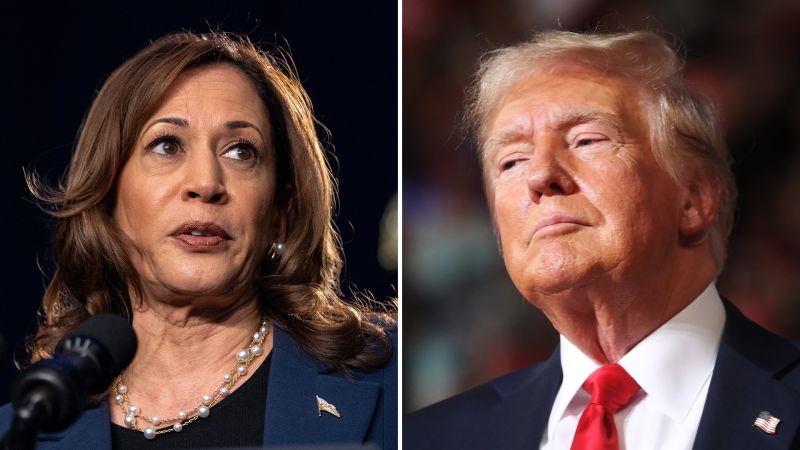With the 2024 election approaching, voters are expressing concerns about economic insecurities, and both parties’ candidates are struggling to address these fears. Former President Donald Trump and Vice President Kamala Harris will be making attempts to convince Americans that they can deliver prosperity in the coming days. While the US economy has shown strong recovery from the Covid-19 pandemic, many Americans have long felt squeezed, and previous presidents have struggled to handle the consequences of inequality fueled by globalization.
Trump, known for his focus on economic issues in the 2016 election, has this year been more focused on personal grievances and insults rather than detailed plans to help workers. His hyperbolic warnings and revisionism of his economic management during his first term have been criticized for benefiting the wealthy more than the working class. President Joe Biden has made efforts to restore economic fairness through domestic policies, but his big spending plans have contributed to inflation issues that have impacted many Americans.
Harris, as the effective incumbent in the race, faces challenges in addressing economic concerns and convincing Americans that a healthy economy will benefit them. Despite her party’s support and catching up in polls against Trump, she will need to provide more specific plans for addressing economic issues. Trump has been quick to criticize any economic downturns under Harris, creating a precarious situation for her campaign. The conflicting economic signals and voter perceptions set the stage for a pivotal few months for the vice president.
Both Trump and Harris are under pressure to address the economy more specifically as the campaign dynamics evolve. The Republican nominee’s focus is on tying Harris to Biden’s perceived failures ahead of her defining herself. Harris is gearing up to present her economic plans, focusing on lowering costs for middle-class families and targeting corporate price-gouging. The race is intensifying around economic issues, with both candidates facing the task of clearly presenting their strategies to win over voters.
As the campaign progresses, Democrats are banking on Harris’ appeal to middle-class Americans, especially on economic issues, with support from party heavyweights like Bill Clinton and Barack Obama. Harris’s surge in polls and the narrowing gap with Trump on the economy are encouraging signs for Democrats. However, Trump is looking to define Harris negatively, especially on the economy, creating a sense of urgency for her to act. Harris is making strategic adjustments, adopting policies to end federal taxes on tips and shifting her tone to emphasize empathy and populism.
Harris’s focus on economic issues, coupled with a message of putting middle-class and working families first, could help her mitigate Trump’s advantage on crucial economic concerns. This approach may be key to winning over voters in swing states like Pennsylvania, Michigan, and Wisconsin, and ultimately securing the path to the Oval Office. The upcoming weeks leading to the election will be crucial as both candidates present their economic plans and strategies to address voter concerns and win their support.


